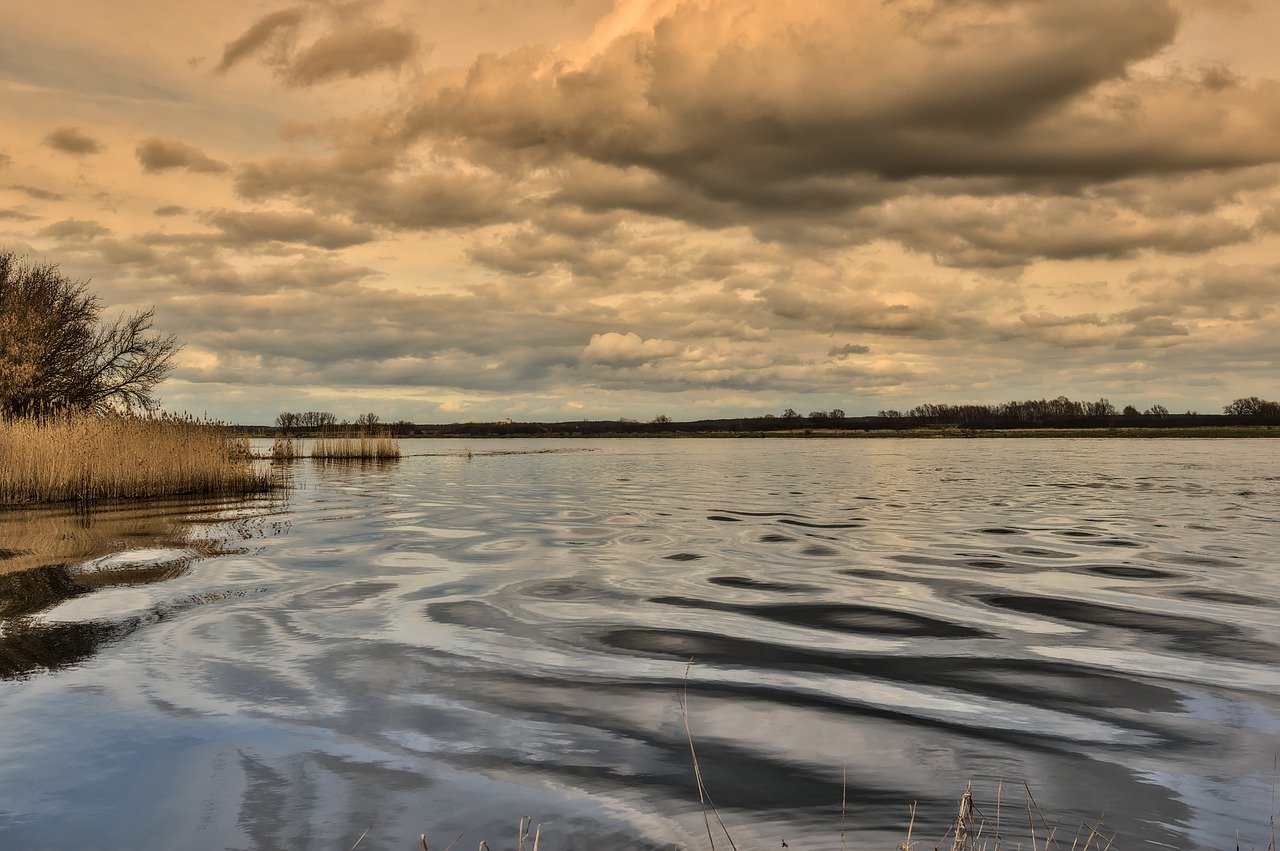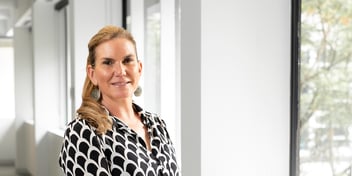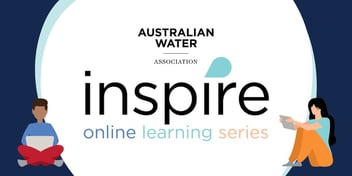Starting on Country: journeying towards reconciliation through reciprocal understandings

As water organisations around Australia continue to work through various iterations of their Reconciliation Action Plans, Barwon Waters partnerships with the Traditional Owners of the region it operates within, Wadawurrung and Eastern Maar, are challenging the typical approach to reconciliation initiatives by honouring the fundamental importance of starting on Country.
Set to present at Ozwater’24 on Barwon Water’s journey towards creating and implementing a truly genuine Reconciliation Action Plan (RAP), Wadawurrung Traditional Owners Aboriginal Corporation Cultural Strengthening General Manager Corrina Eccles said starting on Country is crucial to understanding culture.
“Life is water. Without water there is no life. This is fundamental and important to understanding First Nations cultural values around water, places of water and how water connects to everything. Every part of creation needs water,” she said.
“If you are an employee who has barely any Cultural Knowledge about where you are working, how do you even begin to unpack what a Reconciliation Action Plan actually is without creating another tokenistic gesture that sits on the shelf?
“To understand Country and culture, what’s underneath our feet and around us everyday, it’s crucial to get people out on Country. We created culturally safe environments where there was knowledge sharing, but also spaces to sit and yarn, and feel safe to ask questions.
“It’s about learning to learn from Country, learning how to listen deeply to Country, how to look at Country through a cultural lens in all that Barwon Water staff are doing. Once employees are given these opportunities to grow and learn, it’s much easier for them to understand why we need to do Reconciliation Action Plans in the first place.”
Developed in close partnership with Wadawurrung, Barwon Water’s RAP approach has been informed by deep listening and trust, to build capacity to engage meaningfully with Traditional Custodians and champion Caring for Country approaches.
Barwon Water Senior Climate Change Planner Julia Stanley said the utility’s RAP journey began with the intention to transition away from a regulatory approach to working with Traditional Custodians and culture, to one that was a lot more genuine and authentic.
“Internally, we were having conversations about how we could be Caring for Country in a more meaningful way as a land and water manager. Working with Traditional Owners of both groups has been absolutely critical to developing our understanding of these ways of doing,” she said.
“It seemed counter-intuitive to approach this work using western project management approaches. We wanted to focus on lived-experience and people-centred research, as well as trusting in emergence.
“Western approaches to project management are focused on timelines and budgets and outputs and productivity. We challenged quite a few of those elements with this work. We showed that you can get incredible value and outputs when you prioritise building and maintaining relationships and the overall project process.
“A lot of this work has been about giving Barwon Water employees the opportunity to go and spend time on Country, learning from Traditional Owners. It’s simple but revolutionary. The outcomes from committing to time on Country have been amazing.”
Starting on Country
While First Nations culture is something many water organisations are familiar with, Eccles said working with and learning from Traditional Custodians is often an afterthought or an add on, despite how integral starting on Country is to meaningful understanding and collaboration.
“These are journeys that fall into place. Getting people out on Country is a proven process. We need to start with exposing people to culture and Country, and continue from there,” she said.
“We moved away from timelines and frameworks. We allowed for the days on Country to have their own space, removing structures and allowing people to deeply listen and connect. When you give culture space on Country, it provides the opportunity for some really long yarns.”
Eccles said that, ultimately, the aim is to allow Country to deliver projects: “Water catchments, and many places on our Country, they need us to be able to move forward”.
“We need to spend time on Country, looking at cultural values around land and water management, and consider the knowledge we have about Country and what Country is telling us.
“What originally belonged here? What do we need to return? How do we return Country back to what it should be? This is how we consider issues from a cultural perspective, through our structure and model, which is very different to a western business model.”
Cultural safety
Eccles said starting on Country is also about developing cultural competence and awareness to ensure cultural safety is established and maintained throughout these important RAP partnerships.
“There are many layers to cultural safety. Cultural safety is like the river red gums that line our waterways. There are layers, from the deep water to the species that live there, from the flowing waters to what grows on the banks, to what is nesting on the trees, to the night sky Country. It’s all one story and it's all woven and connected,” she said.
“Cultural safety is about recognising, valuing and conserving culture in our landscapes, our environments and in our water. But it’s also about cultural safety for First Nations people.
“Barwon Water has a relatively high rate of First Nations employees. Cultural safety is about ensuring non-Indigenous peers don't approach First Nations employees in ways that threaten their right to safety and wellbeing at work.
“Aboriginal identity isn’t something people always see. Aboriginality is in our DNA, it’s strongly in our Country and land and water. We are holistic, we are one with the land, Country and waters. It’s important for people to understand that perspective and our ways of working.”
Eccles said Barwon Water has made progress in the right direction when it comes to working with Wadawurrung and Eastern Maar on its RAP and Caring for Country initiatives.
“It hasn’t always been easy going. There were mistakes made along the way. But we found balance and then we were walking together,” she said.
“Barwon Water is making significant shifts. Most things we do with a cultural element now start out on Country where everyone can hear, feel and see the stories. Now, all the core strategic planning starts first with cultural understanding and heritage and cultural sensitivity.
“It’s not the add on, it’s the seed to everything that grows and prospers and the decisions that are made.”
Trusting cultural ways of being, doing and knowing
Stanley said the approach to starting first on Country, trusting in emergence and allowing Country to steer the direction of projects has been transformative.
“Initially, I was nervous about what we would achieve through the process, I wasn’t sure if we’d end up with the kind of ‘output’ that our usual processes expect. We were trying something different. I couldn’t believe how well all of the themes came together,” she said.
“Everyone has loved the time spent on Country, as well as what they have learned from Wadawurrung and Eastern Maar through the process. Themes emerged beautifully and organically.”
Importantly, trusting in the process and starting on Country has also produced benefits for Wadawurrung, as well.
“It’s important for organisations to consider what is being done to support Traditional Owners that are generously giving their energy and sharing their knowledge. These are the conversations that haven’t happened in the past,” Eccles said.
“But now, we share the solutions and aspirations for water, Country and our people.
“Everything in our Healthy Country plan is embedded into every document and strategic plan that Barwon Water releases, which is very beneficial to us in terms of how our land and water is cared for.
“The RAP plan at Barwon Water is a drop in the ocean. What we are doing here is genuine, it's real and it's of value, and it’s a journey together. Its recognition, its respect, its prosperity, not only for Wadawurrung, but also for Barwon Water.”
“We are now focusing on embedding these approaches throughout Barwon Water to make it part of our ‘business as usual’ and are excited to continue working with Wadawurrung and Eastern Maar as we walk this journey of reconciliation”, Stanley said.
Interested in learning more about the partnership between Wadawurrung Traditional Owners Aboriginal Corporation and Barwon Water? Register for Ozwater’24 here.



